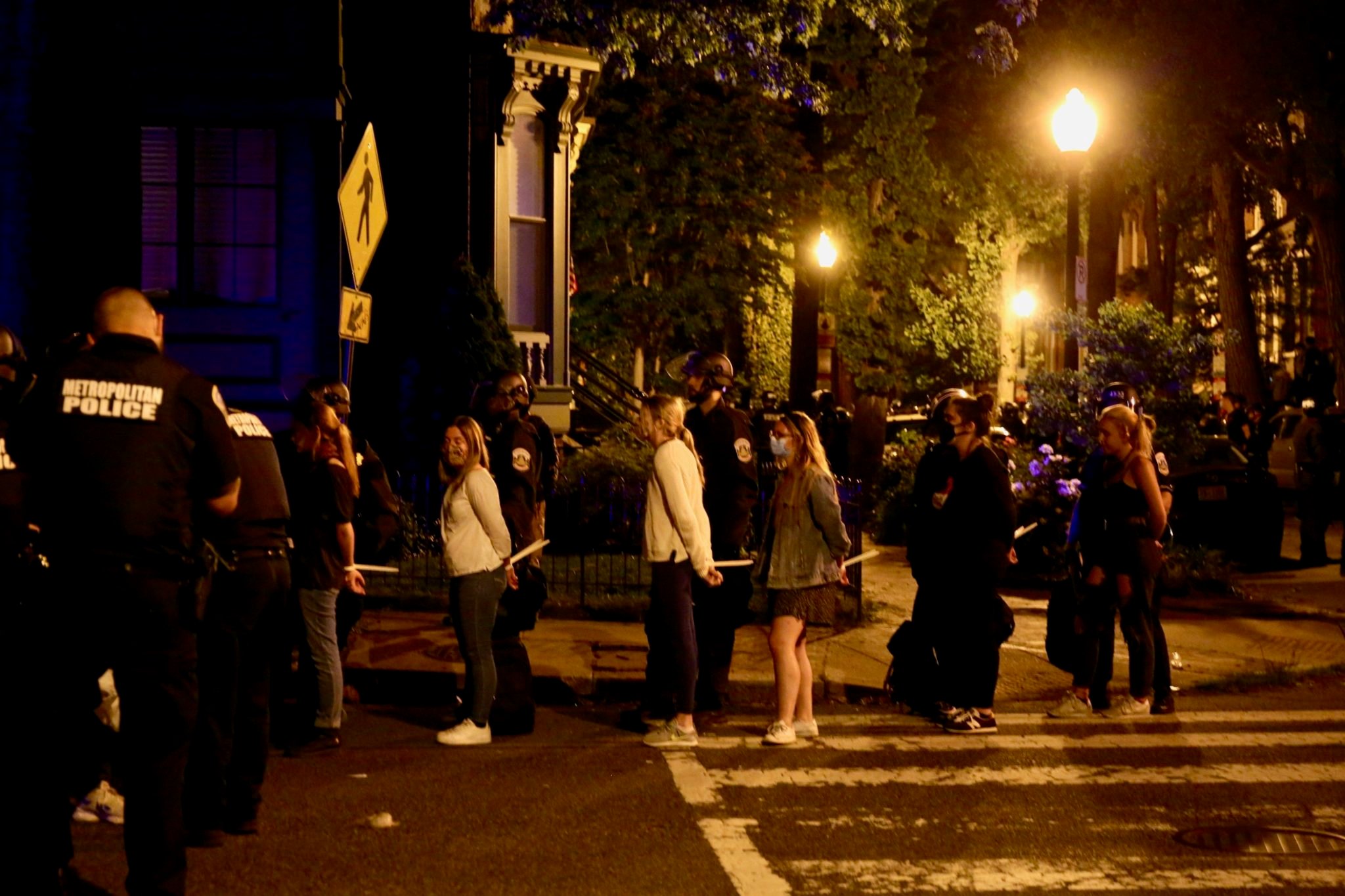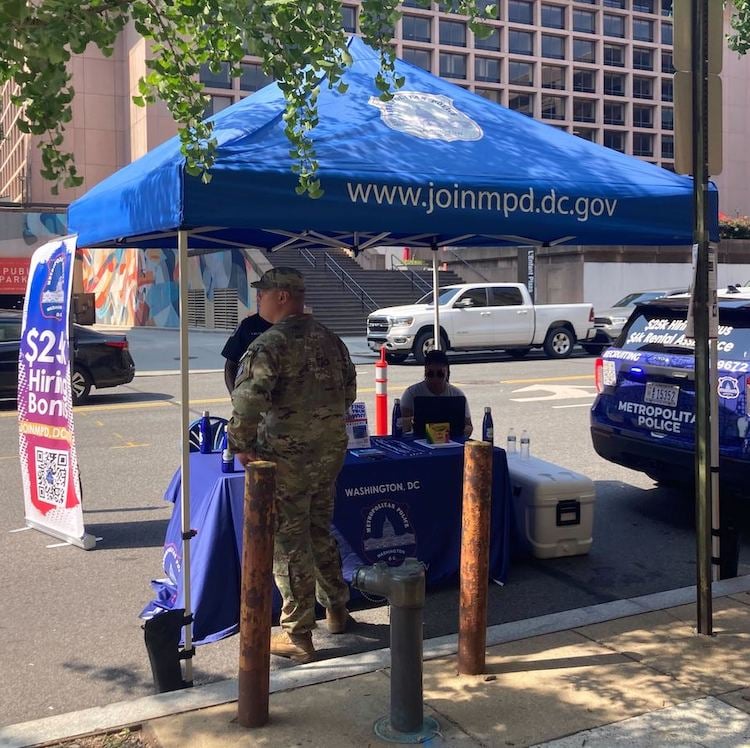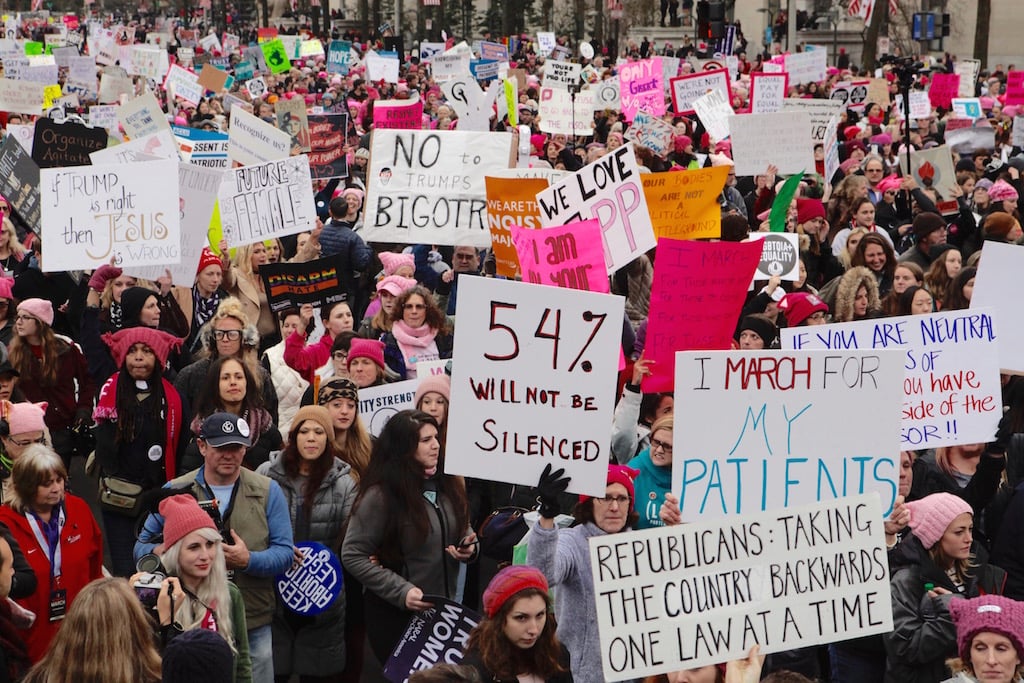On the evening of June 1, 2020, DC police “kettled” protesters who traveled uptown after feds cleared Lafayette Square with teargas so President Trump could take a photo in front of St. John’s Church. The police accounts of why they felt they had to contain and arrest protesters, some of whom spent the night with strangers in nearby houses, do not square with the accounts of more than 50 eyewitnesses, according to a new report from the ACLU of the District of Columbia, the Washington Lawyers’ Committee for Civil Rights and Urban Affairs, and the law firm Sidley Austin LLP.
The report tracks closely with Washingtonian‘s reporting of what really happened on Swann Street, Northwest, last summer. The protests last summer followed the death of George Floyd in Minneapolis. DC Mayor Muriel Bowser imposed a 7 PM curfew after two nights of protests near the White House. A number of protesters, some of whom had been teargassed and pushed out of Lafayette Square, made their way north toward Columbia Heights, but police funneled them onto Swann Street.
Former Police Chief Peter Newsham said members of the group had thrown “different projectiles” and cited the “burning of a Metropolitan Police Department police vehicle” at a press conference on June 3, but the report says those concerns were overblown and perhaps bogus: The projectiles were water bottles thrown by a small number of people, and “other protestors immediately interceded.” Further, police appear to have directed the group in such a way that it couldn’t possibly have been involved in the police-cruiser fire at 14th and Clifton streets, Northwest. “In sum, no person interviewed reported witnessing violent conduct in or around the protest,” the report says.
The report also scrutinizes the police’s decision to “kettle” the crowd. DC cops have invited great controversy when they used the technique on several previous occasions, notably Pershing Park in 2002 and Inauguration Day 2017. The practice was all but outlawed in 2005, but a clause in the First Amendment Rights and Police Standards Act allows the police discretion to deploy kettling when they believe “a significant number or percentage of the persons located in the area or zone have committed unlawful acts”—such as violating a curfew.
Still, no eyewitnesses recall the police ordering them to disperse peacefully, and the report says cops wouldn’t allow anyone who just wanted to go home to do so. Protesters who were arrested say they were restrained using zip-ties and were in many cases unable to replace their face masks after cops removed them while processing them. Many were “were crammed into holding cells” in the DC Police Academy in Southwest in contravention of federal and local Covid guidelines and held for hours.
In a statement to WJLA, the DC Police Union said the report omitted facts and reflected the ACLU’s “anti-police agenda.” The union says the report is “just another contrived effort by the ACLU to achieve their goals of defunding police.”
The report urges the DC Council to investigate what it politely calls the “tension in reported facts” between the police accounts of June 1 and those of the protesters and witnesses. Among its other recommendations: The DC Council should “consider whether D.C. law or policy should be changed to promote a more restrained police response to peaceful protests in the District”; it should change the First Amendment Rights Act to “require that police attempt to disperse an unlawful but non-violent assembly in accordance with the requirements of the Act before engaging in kettling tactics or arrests”; and it should “review the decision-making process of MPD with respect to kettling and to require the police to consider and issue guidance on the appropriate situations in which this escalatory tactic can be used based on curfew violations.”




















